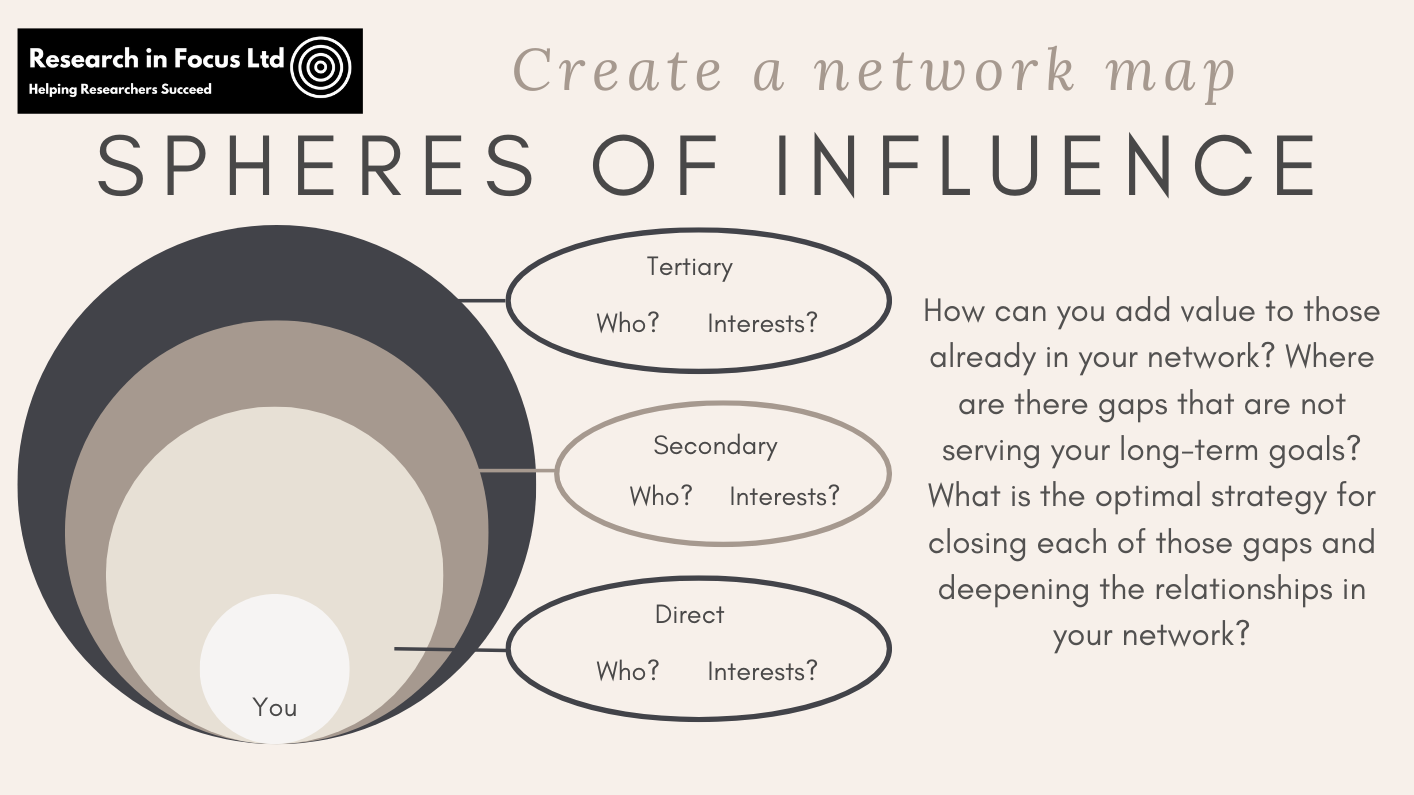Build your network

It’s increasingly common to come across researchers, early career researchers in particular, who are struggling to build a network, or who just don’t know where, or how, to start. Pre-2020 we’d be off to conferences in person and so getting to know people in our topic would happen organically, these days we’ve got many more options to attend conferences, or meetings, etc, remotely, which is a huge relief for those with competing demands on their time, or for whatever reason wouldn’t otherwise be able to attend. But the significant upside of widening participation, comes at the cost of making it more difficult to organically develop our network of connections within, and beyond, our research topics.
Here's a way of thinking about building your network in case that’s a goal for 2025 for you.
Let’s use the Spheres of influence model to analyse the status of your current network. Start by listing out all the people you know well, your direct contacts, people you would be happy to email asking for an intro to someone else, or to offer help too, or to ask for their opinion. What are they interested in, where might their be overlaps with your interests. Then note down any connections your direct contacts have, people they’ve published with, people they’ve mentioned, etc. and any relevant interests, particularly any that overlap with yours. Then do the same where you can for their contacts, info will probably be quite sparse here and sourced from e.g. publications, mentions on their website, etc.
Now look for mutually beneficial overlaps, where you have shared interests are there things you could share with that contact that could support their goals, without harming your aims, for example these might include, early results, approaches which seem to yield more reproducible results than others, pre-prints, etc.
Then develop a strategy for sharing these. Are you likely to meet at an event? Could a direct contact provide an introduction? Would you be prepared to “cold call” i.e. send an unsolicited email appreciating something from a paper, etc. of theirs that you’ve just read e.g. I found aspect XYZ fascinating, because of…. If you close with a phrase something along the lines of no need to respond, I just wanted you to know… the recipient is likely to appreciate it because it doesn’t create the expectation of them replying to you. People love talking about their work and so they may well reply/look up your webpage (make sure this is up to date!) and you’ll have started an interaction, which could lead to interesting/useful conversations about shared interests. Other types of unsolicited email could include I have some early results that I thought you might like sight of. Whatever you do try to add value and not expect anything in return, some efforts will lead to nothing, but others might spark a useful interaction. You’re more likely to succeed in creating a proper beneficial for all, exchange and therefore drawing that contact deeper into your network if a mutual contact can make the first introduction!
In addition to strengthening areas of shared interest use the network map to work out where there are gaps that would benefit from filling. Perhaps there are topic areas which could influence your work where your network is weak, or non-existent. Could you chat with direct contacts to see whether they can help you fill these gaps? Could you go to different events in 2025 and try to find people in these areas to add to your network. What from your own work can you contribute that might be interesting/useful to them and therefore motivate them to be interested in your work?
When it comes to building your network, think of it as a 2 way exchange: what have you got that might be of value to others, and what could others help you with?
Good luck!


